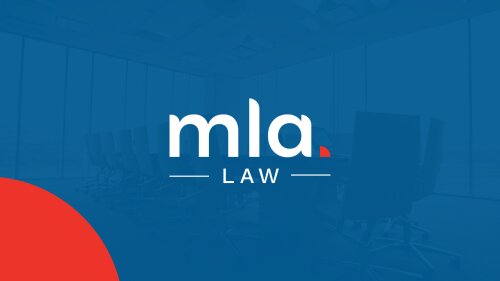Best Transportation Lawyers in Greater Sudbury
Share your needs with us, get contacted by law firms.
Free. Takes 2 min.
List of the best lawyers in Greater Sudbury, Canada
About Transportation Law in Greater Sudbury, Canada
Greater Sudbury, located in Northern Ontario, is a hub for many transportation activities due to its size, mining sector, and connection to major Ontario highways and rail lines. Transportation law in this region encompasses a variety of regulations and legislation governing the safe and legal movement of people and goods by road, rail, air, and, to a lesser extent, waterways. This includes traffic regulation, commercial vehicle operation, public transit (Sudbury Transit), licensing, vehicle safety standards, and accessibility requirements. The city also emphasizes public safety and environmental stewardship, especially considering its industrial heritage and ongoing environmental restoration.
Why You May Need a Lawyer
Legal issues related to transportation can be complex, and residents or businesses in Greater Sudbury may need legal help for several reasons:
- Traffic Offences: Dealing with speeding tickets, impaired driving charges (DUI), or accidents involving injury or property damage.
- Commercial Transportation: Trucking companies or drivers may face compliance investigations, licensing issues, or disputes with contract haulers.
- Public Transit: Concerns regarding access, service disputes, or incidents on Sudbury Transit vehicles.
- Vehicle Accidents: Handling insurance claims, determining liability, or pursuing compensation following road accidents.
- Accessibility: Addressing legal questions about public transit accessibility and the rights of persons with disabilities.
- Transportation of Dangerous Goods: Regulatory compliance for businesses involved in moving hazardous materials.
- Municipal By-Law Issues: Navigating parking disputes, licensing of taxis, rideshares, or disputes with city by-law enforcement officers.
- Employment Issues: Workplace injuries or disputes within the transportation sector, including grievances and wrongful dismissal claims.
Local Laws Overview
Transportation in Greater Sudbury is regulated by municipal by-laws, provincial statutes, and federal regulations. Some key local legal points include:
- Ontario Highway Traffic Act (HTA): Governs all road use including speeding, impaired driving, seatbelt use, and vehicle registration.
- City of Greater Sudbury By-Laws: Set local rules for parking, taxi and private transportation licensing, snow removal, truck routes, and noise from vehicles.
- Commercial Vehicle Standards: Commercial vehicles must meet Ontario Ministry of Transportation (MTO) standards for safety, permits, and logbooks.
- Public Transit Regulations: Sudbury Transit must comply with accessibility standards under the Accessibility for Ontarians with Disabilities Act (AODA).
- Rail and Air Transport: Regulated mainly by federal authorities but with local input, especially for development and environmental impact.
- Active Transportation: Municipal initiatives promote cycling, walking, and non-motorized transport with infrastructure and safety by-laws.
Frequently Asked Questions
What should I do if I receive a traffic ticket in Greater Sudbury?
You can pay the fine, request a trial, or seek to resolve the matter with the prosecutor. If you wish to contest the ticket or mitigate consequences, consult a legal professional familiar with Ontario's Highway Traffic Act.
How do I dispute a parking ticket issued by the City of Greater Sudbury?
Review the ticket for instructions on dispute resolution. Typically, you have a set period to file an appeal or request an in-person review with the city’s parking violations office.
What are the regulations for commercial vehicle operators in Greater Sudbury?
Commercial vehicles must comply with safety standards, have the appropriate licenses and permits, and follow all hours-of-service rules outlined by the Ontario MTO. Local by-laws may also restrict routes or loading zones.
Is Sudbury Transit accessible for people with disabilities?
Yes, Sudbury Transit is required to comply with the Accessibility for Ontarians with Disabilities Act (AODA), ensuring accessible vehicles and accommodations. Sudbury also provides a specialized GOVA Plus transit service.
What should I do after a vehicular accident?
Ensure everyone’s safety, contact police for injuries or significant damage, exchange information, document the scene, and notify your insurance provider. Seek legal advice if you face charges or need to claim compensation.
Who regulates taxi and rideshare services in Sudbury?
The City of Greater Sudbury licenses taxis and vehicle-for-hire companies, including requirements for drivers, vehicle safety, insurance, and fare regulation. Operating without a license can result in fines.
Are there special permits needed for moving oversized loads in Sudbury?
Yes, moving oversized or overweight loads requires permits from the Ontario Ministry of Transportation, and you may need to notify the municipality for route planning through local roads.
How are noise complaints regarding transportation handled?
Noise from vehicles and transit operations is regulated by city by-laws. Complaints can be filed with the City of Greater Sudbury By-law Enforcement Office.
What is considered impaired driving in Ontario?
Operating any vehicle while your ability is impaired by alcohol, drugs, or a combination is a criminal offense. Ontario law sets legal limits for blood alcohol and imposes roadside penalties for violations.
How do I start a transportation-related business in Greater Sudbury?
You must comply with local business licensing, zoning requirements, and provincial/federal regulations for vehicles and drivers. Consulting a lawyer is recommended to ensure compliance and draft contracts or policies.
Additional Resources
Consider reaching out to the following resources for information and assistance related to transportation issues in Greater Sudbury:
- City of Greater Sudbury: For by-laws, parking, taxi licensing, and transit-related matters.
- Ontario Ministry of Transportation (MTO): For licensing, commercial vehicle standards, and highway regulations.
- Sudbury Transit (GOVA): For route, service, and accessibility questions.
- Ontario Provincial Police (OPP) and Greater Sudbury Police Service: For accidents, enforcement, and traffic investigations.
- Legal Aid Ontario: For individuals who qualify for free or low-cost legal services.
- Law Society of Ontario: For finding licensed lawyers and paralegals in transportation law.
- Ontario Highway Traffic Act and Accessibility for Ontarians with Disabilities Act (AODA): For full legal text and regulations.
Next Steps
If you need legal assistance with a transportation matter in Greater Sudbury:
- Gather all relevant information and documentation (tickets, accident reports, correspondence, contracts, etc.).
- Identify the type of issue you are facing (criminal, civil, regulatory, employment, etc.).
- Contact a lawyer experienced in transportation law, particularly one familiar with Ontario and municipal regulations.
- Consult local resources as listed above to understand your rights and possible avenues for resolution.
- If you qualify, apply for legal aid or seek guidance from paralegal services for minor matters like traffic tickets.
- For urgent matters (accidents, criminal charges), act promptly-deadlines and legal consequences may be immediate.
Lawzana helps you find the best lawyers and law firms in Greater Sudbury through a curated and pre-screened list of qualified legal professionals. Our platform offers rankings and detailed profiles of attorneys and law firms, allowing you to compare based on practice areas, including Transportation, experience, and client feedback.
Each profile includes a description of the firm's areas of practice, client reviews, team members and partners, year of establishment, spoken languages, office locations, contact information, social media presence, and any published articles or resources. Most firms on our platform speak English and are experienced in both local and international legal matters.
Get a quote from top-rated law firms in Greater Sudbury, Canada — quickly, securely, and without unnecessary hassle.
Disclaimer:
The information provided on this page is for general informational purposes only and does not constitute legal advice. While we strive to ensure the accuracy and relevance of the content, legal information may change over time, and interpretations of the law can vary. You should always consult with a qualified legal professional for advice specific to your situation.
We disclaim all liability for actions taken or not taken based on the content of this page. If you believe any information is incorrect or outdated, please contact us, and we will review and update it where appropriate.











